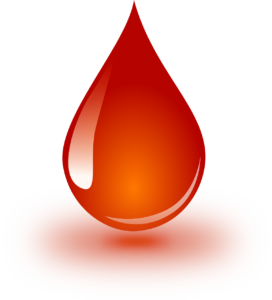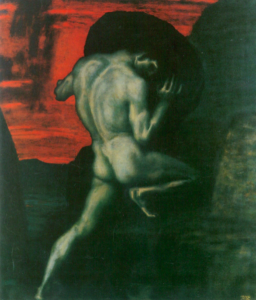by James Scott Bell
@jamesscottbell
 One of the more ubiquitous quotes about writing out there, almost always attributed to Hemingway, is: “There is nothing to writing. All you do is sit down at a typewriter and bleed.”
One of the more ubiquitous quotes about writing out there, almost always attributed to Hemingway, is: “There is nothing to writing. All you do is sit down at a typewriter and bleed.”
Great quote, eh? Only problem is, Hemingway never said it, never wrote it, and probably never even thought it.
So why is he considered the source? Because some quote aggregator back in the 1970s thought it sounded like something Hemingway would say. You know, the running-with-the-bulls guy, the likes-to-box guy. He’d be all about blood.
Not.
Later, the line was given to him in a mediocre TV movie called Hemingway & Gellhorn (2012). So now you see it almost daily on X, the site formerly known as Twitter, along with another thing Hemingway never said: “Write drunk. Edit sober.” I’m starting to feel like that Britney Spears guy. “Leave Ernest Hemingway alone!!!!”
The real source for the blood quote comes down to a choice between two writers: Paul Gallico (author of The Poseidon Adventure) and the great sports columnist Red Smith. In a 1946 book, Confessions of a Story Writer, Gallico wrote:
It is only when you open your veins and bleed onto the page a little that you establish contact with your reader. If you do not believe in the characters or the story you are doing at that moment with all your mind, strength, and will, if you don’t feel joy and excitement while writing it, then you’re wasting good white paper, even if it sells, because there are other ways in which a writer can bring in the rent money besides writing bad or phony stories.
This is good advice. You can write competent fiction without feeling. Heck, that’s what AI does. But you won’t get that deep connection with the readers—and turn them into fans—unless you pour your own heart’s blood into the characters and your prose.
Shortly after Gallico’s book came out, the widely-syndicated columnist Walter Winchell quoted Red Smith as saying, “You simply sit down at the typewriter, open your veins, and bleed.” It’s likely, then, that Winchell and/or Smith paraphrased Gallico.
Smith apparently liked the blood metaphor, for in a profile in 1961 in Time magazine, he was asked how hard it was to produce a sports column every day. “Writing a column is easy,” he replied. “You just sit at your typewriter until little drops of blood appear on your forehead.”
This has a different meaning than the “bleed on the page” quote. It’s an obvious reference to the agony of Jesus in the Garden of Gethsemane (Luke 22:44). Smith was talking about the agony of having to come up with a fresh column idea every 24 hours (not easy!) and then write it in his singular style.
Putting these two sentiments together, I find it essential to feel something when I write a scene. Music helps. I have a playlist of various moods taken from movie soundtracks. I need an inner vibration to make a scene come alive.
And while I wouldn’t describe myself as “agonizing” (Proust-like) over my style, I do go over my words at least three times. There’s the daily editing of the previous day’s work; then the first read-through in hard copy; and a final polish. I pursue that “unobtrusive poetry” John D. MacDonald talked about. The effort, for me at least, is entirely worth it.
Mega-bestselling author John Green (Turtles All the Way Down) put it this way:
[W]riting is difficult for me. Sometimes it is difficult because I do not know what I want to say, but usually it is difficult because I know exactly what I want to say but what I want to say has not yet taken the shape of language. When I’m writing, I’m trying to translate ideas and feelings and wild abstractions into language, and that translation is complicated and challenging work. (But it is also — in moments, anyway — fun.)
It is indeed fun, and fully satisfying, to sit back and look at something you’ve written and think, “Ya know, that’s pretty darn good.” Maybe that’s what Hemingway meant when he (really) said, “For a long time now I have tried simply to write the best I can. Sometimes I have good luck and write better than I can.”
So…do you ever think of yourself as “bleeding” on the page? Should you?

